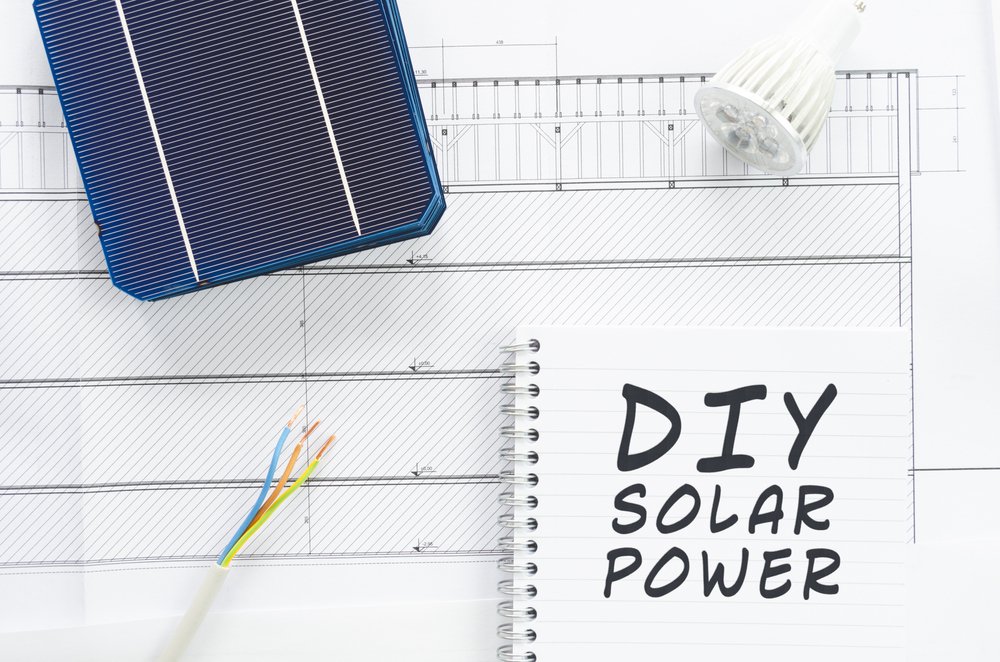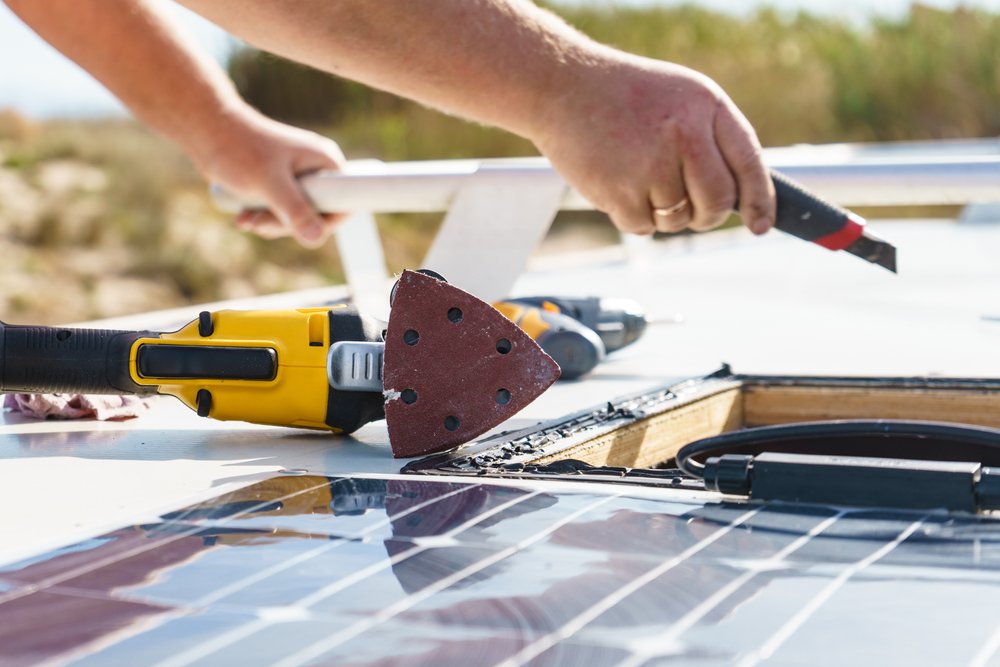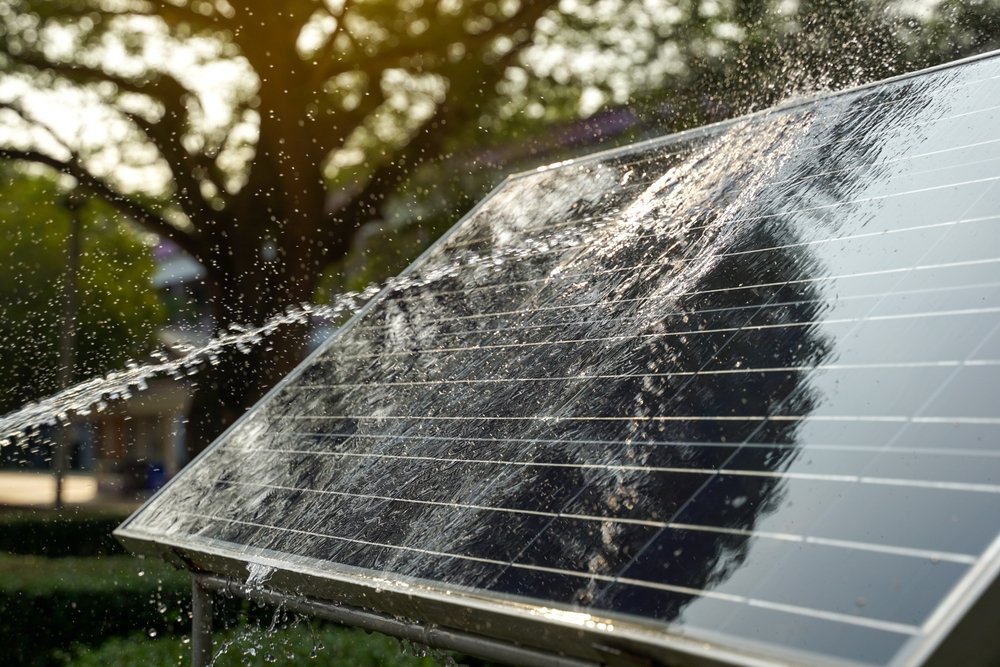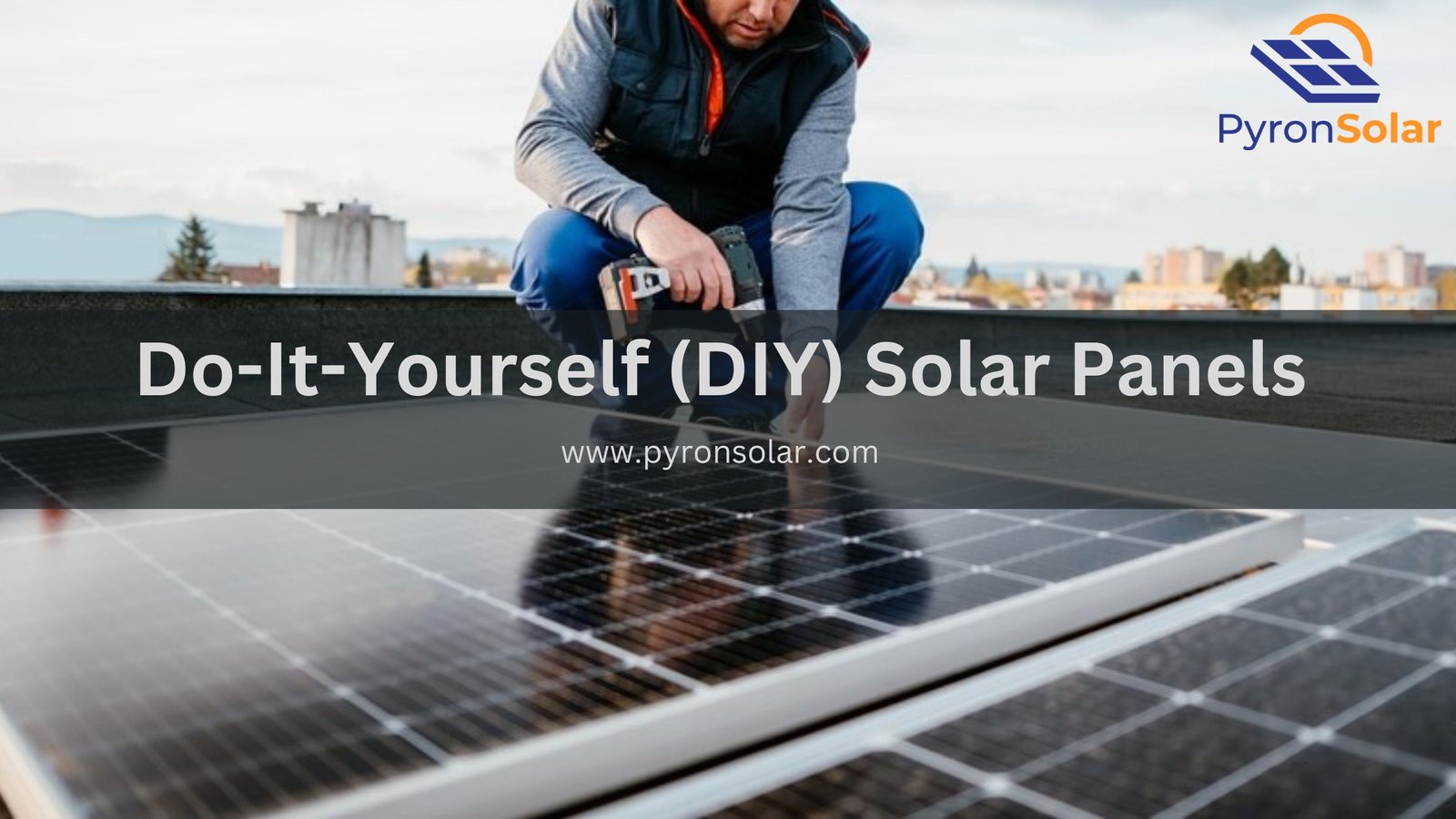Solar panels are devices that transform sun radiation into electric power. In recent times they have been gaining popularity as they provide a renewable source of energy, reduce the dependence on fossil fuels and have a positive impact on the ecology. But still, one main problem for their implementation is the initial upfront cost.
This is where the feasibility of Do-It-Yourself (DIY) solar panels is introduced. They are developing their place as replacements for expensive and professionally installed options.

An Introduction to DIY Solar Panels
DIY solar panels are those solar panels that you can install by yourself and that is why it is known as “DIY – Do it Yourself”. However, these DIY solar panels differ from professionally installed systems by being very less expensive and their installations are so simple that they do not require much technical knowledge or expertise to set up the system.
Generally, the solar panel kits are available to almost anyone who wishes to take on this project. These kits primarily include solar panels, and an inverter, along with a few additional components such as mounting hardware and wiring. However, you will require some more extra tools to install these systems, including a drill and a ladder.
The vast majority of DIY solar kits are developed for off-grid usage, and in fact that can be quite challenging for many homeowners who heavily depend on the grid for their electricity consumption. This is mainly due to the requirement of additional components off-grid like the batteries for energy storage and management, adding further complexity and overall system cost.
Can You Install Solar Panel Systems by yourself?
DIY solar panel suitability is completely based on the scale of the project. However, smaller projects like — powering RVs, tiny homes, portable gadgets, and sheds, can serve as a fantastic starting point for beginners.
However, for the installation of a full-scale solar power system, a highly skilled installer is always required. This is mainly because these solar installers will help you in applying for incentives, obtaining permits for installations, and making sure that the system is professionally, safely and securely installed. On top of that, the product quality that installers have is far superior compared to the solar kits.
A step-by-step guide to installing a DIY Solar Panel

Installing a DIY solar panel involves the following several steps:
Planning: First and the foremost step is to determine the overall system size you require, depending on your energy consumption pattern. Also, you must decide on which type of solar panel and the components you are going to use.
Site Assessment: It is important to evaluate the location where you are planning to carry out the panel installation process. Also, that site needs to have adequate sunlight exposure and not have any obstructing structures like trees or buildings.
Obtaining Permits: Based on your site location, you will have to obtain permits for the solar panel installation. However, you must note that in a few areas, it is illegal to install these DIY solar panels, so make sure to check the local laws and regulations before you install them.
Mounting the Panels: Make sure to safely and securely mount the panels to a sturdy structure, which can either be your roof or any dedicated solar array.
Wiring the System: The panels need to be connected to an inverter, which converts the direct current (DC) produced by the panels into alternating current (AC) that can be used in your home.
Connecting to a Battery or the Grid: If you’re setting up an off-grid system, you’ll need to connect the panels to a battery for energy storage. If you’re setting up a grid-tied system, you’ll need to connect the system to your home’s electrical grid.
Safety Checks: Finally, you need to conduct safety checks to ensure the system is installed correctly and safely. This includes checking the wiring and the stability of the panel mounting.
Pros and Cons of DIY Solar Panel
| Pros | Cons |
| Potential savings on installation costs | Requires much more maintenance |
| Customization possibilities | Risk of improper installation |
| Effectiveness in powering limited appliances | Potential safety hazards |
| Isn’t covered by a warranty |
Cost of DIY Solar Panels
The cost of a DIY solar panel system will fluctuate according to the size of the entire system and type of the panel used. However, a small DIY solar panel costs around $1,000 and $3,000. Whereas large systems cost up to $10,000 or more.
Here is the breakdown of several costs that are involved with a DIY solar panel system:
- DIY Solar Kit: The major cost gets added to the budget while buying the DIY solar kit itself. This is because the kit usually includes — solar panels, an inverter, and other higher-value components like mounting hardware and wiring. Often, the DIY solar kit cost ranges from a few hundred to many thousand dollars, based on the panel’s size and quality.
- Additional Tools or Materials: You will need additional tools or materials like — a drill, ladder, or extra wiring. Therefore, these costs can add up to your budget if you don’t have these tools already.
- Potential Upgrades: When you opt for a system upgrade in the future, like adding a few more panels or a much more efficient inverter, will incur more cost.
- Hidden Costs: There could be hidden costs that come with a DIY solar panel system. For example, you will have to obtain the necessary permits for panel installation, which can be costlier. On top of that, if you make any mistakes during installation, you will have to buy the replacement parts.
DIY solar panel systems can be much cheaper compared to the cost of a professional installation. Whereas, professional installations come with warranties and are eligible for financial incentives like tax credits, which can help cover some costs. However, professionals have the necessary expertise to make sure that the system installation is correct and safe.
Maintenance of DIY Solar Systems

Maintaining a DIY solar system means performing a few necessary tasks to make sure that it works efficiently:
1. Cleaning the Panels: Solar panels tend to accumulate more dust, so they require regular cleaning so that they will be able to absorb maximum sunlight.
2. Monitoring System Performance: Checking solar system output regularly will help you figure out any issues. It includes monitoring the panel’s power output and battery charge level.
3. Replacing Components as Needed: You need to make sure that the solar system components are replaced from time to time based on necessity. Replacement can include — the entire solar panels, inverter, batteries, or other components and parts of the system.
Self-maintenance of a DIY solar system can have serious implications for solar panel efficiency and lifespan. Primarily, regular maintenance will help us to make sure the system’s operations are at peak efficiency. On the other hand, no proper maintenance will result in reduced performance and can even create damage to the system.
For example, using harsh chemicals for cleaning the panels can scratch the panel surface and reduce their ability to capture sunlight properly. Although self-maintenance will save you money, if you think you cannot invest time in its maintenance then considering a professionally installed system would be the better option as it will include maintenance services.
Are DIY Solar Panels Right for You?
Yes, DIY solar panels are a worthwhile investment based on a few factors including — your comfort with DIY projects, the scale of the project, your budget, and your energy requirements.
If you are planning to generate electricity for a small-scale project such as an RV or a shed, then a DIY solar panel system will be the best value-for-money option for you. Whereas, if you are looking for large-scale projects which require more power, then considering a professionally installed system will be the better option for you.
Also, there are a few more important factors that you should consider while opting for a DIY solar kit:
- Quality of the Kit
- The scale of the Project
- Local Regulations
- Maintenance
Can You Make Your Own Solar Panels?
Yes, it is indeed technically possible to make your own solar panels, but it is usually not recommended for the majority of people. But, there are a few complexities in the solar panel manufacturing process that include — solar cell creation, cell assembling into panels, and cell encapsulation to safeguard them from the environment.
However, the entire process will require you to have in-depth knowledge and the necessary equipment. Also, a small mistake can cause the panel’s decreased efficiency. Above all, homemade DIY solar panels are not as durable or dependable as industrially engineered panels.
Therefore, while making your own solar panels can be an interesting educational project, it is generally not a practical or cost-effective way to generate solar power for most people. Instead, purchasing a commercial solar panel or a DIY solar kit is usually a better option.
Ray is an avid reader and writer with over 25 years of experience serving various domestic and multinational private and public energy companies in the USA.

